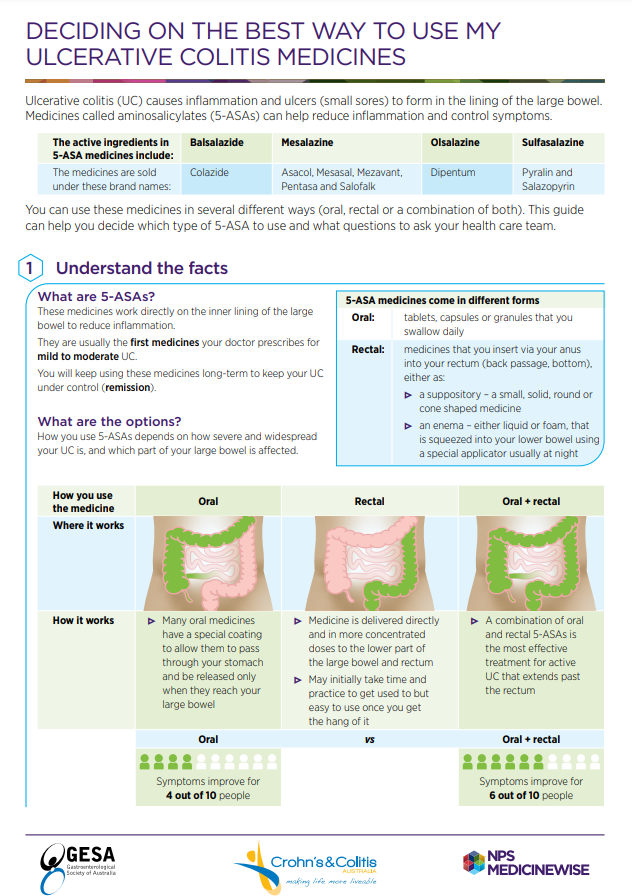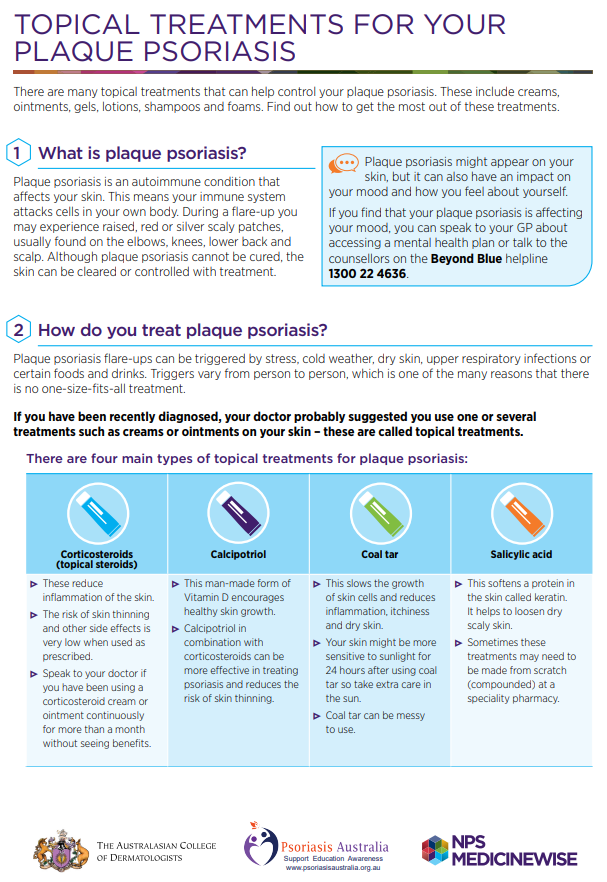The main groups of medicines to treat inflammation for ulcerative colitis are:
- Aminosalicylates
- Steroids
- Azathioprine
- Biologics (TNF inhibitors).

Low or no data? Visit zero.govt.nz, scroll down the page then click on our logo to return to our site and browse for free.

The main groups of medicines to treat inflammation for ulcerative colitis are:
Deciding on the best way to use my ulcerative colitis medicines(external link) NPS MedicineWise, Australia, 2021
Thiopurines for inflammatory bowel disease(external link) NPS MedicineWise, Australia, 2021

NPS MedicineWise, Australia, 2021

NPS MedicineWise, Australia, 2021
Credits: Sandra Ponen, Pharmacist, Healthify He Puna Waiora. Healthify is brought to you by Health Navigator Charitable Trust.
Reviewed by: Angela Lambie, Pharmacist, Auckland
Last reviewed:
Page last updated: